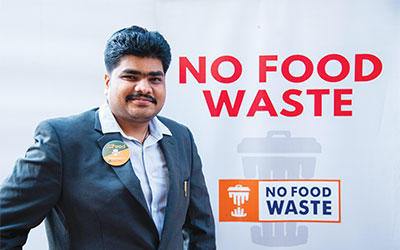
A batch topper engineering graduate of the city’s Government College of Technology, Padmanabhan partnered with college friends — Dinesh Manickam and Sudhakar Mohan — to co-promote NFW in 2014 under the auspices of the SPICE (Society Promoting Innovation Creativity and Entrepreneurship) Foundation, provoking severe parental censure and displeasure for forsaking a corporate career for voluntary service. “During weddings, birthdays, anniversaries and even public functions, mountains of food is prepared to entertain guests, friends and relatives.
And it’s a national tradition to cater for larger than expected number of guests. On the other hand, within the radius of a few kilometres there are inevitably thousands of people who go to bed on empty stomachs. In NFW, our objective is to prevent leftover food from going waste — to ‘feed people not landfills’,” says Gopalan.
Currently, NFW’s volunteers collect, package and distribute food to 900 hungry and destitute people per day in 14 urban habitats in Tamil Nadu and two in Andhra Pradesh, thus saving 321 tonnes of cooked food valued at Rs.487 crore per year, and have fed 9.74 lakh needy people thus far.
Enthused by the warm reception accorded to NFW by all sections of society, Gopalan has drawn up an ambitious plan to meld latest digital technologies in this NGO’s operations. “I am exploring ways to design and develop superior technology to reduce food wastage at the production stage and develop better logistics. Every year, over 25 million tonnes of foodgrains and 40 percent of the country’s horticulture produce — fruits and vegetables — are wasted. This huge waste has to be reduced to zero because the number of poor and hungry is increasing. That’s our larger mission,” says Gopalan.
Hemalatha Raghupathi (Chennai)